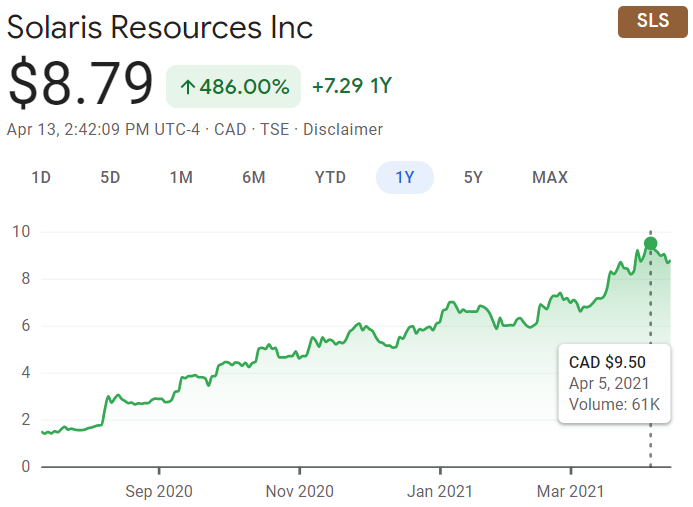
To a degree, the mining business has always mimicked the process from which it profits and has remained deferential to its two noble truths: pressure and time. Change doesn’t happen overnight, profit rarely comes without pain. But the payoff is inevitably worth it and its value invariably lasts. But more and more we are seeing the mining sector adopt the impatience and short-termism that is commonplace in major financial centres, and this is particularly the case in London. An on-going row at Petropavlovsk, the London-listed mining company, is fast-becoming a case study for the vulnerability of small-cap companies to foreign influence and with it we are seeing the changing nature of the mining sector.
Outside observers to the Petropavlovsk case are bemused at the failure of London’s established institutions and regulators to recognise the methods that foreign interests will employ to gain an advantage. London, post-Brexit vote, is an increasingly popular hunting ground for foreign interest groups: some taking advantage of the weak pound, others taking advantage of the weaker institutions. The commitment of arbiters like the City Takeover Panel – many of whom are employees of the companies whom they purport to scrutinise – and the proxy shareholders advisory firms to the ‘old way’ of doing things, particularly their blindness to the shrewd aggression of foreign players, will ultimately leave them all with egg on their face. If the AGM goes as predicted this week and the current board is ousted, the Petropavlovsk case may well prove to be the latest in a litany of failures at the hands of London’s regulators, and here’s why.
Renova ascendant
If they oust the Board, it is all but confirmed now that Renova, Petropavlovsk’s largest shareholder, will use the company as a vessel for dumping its wider mining assets. Given Renova’s history of stealth takeovers, it’s long been suspected that they were up to their old tricks this time too. But I’ve heard from friends that at cocktail parties across Moscow, Renova’s billionaire owner, Viktor Vekselberg, is hardly being coy about his long-held intentions to infiltrate and seek-control of Petropavlovsk. Quoting sources inside Renova, the Russian press has reported that the motivation is Petropavlovsk’s London listing. Either Vekselberg is seeking to create a mining conglomerate into which it can dump its suspicious assets (such as Kamchatka Gold, as reported in Russian press), or create a vessel into which he can merge Roman Abramovich’s Highland Gold assets. Certainly the proposed appointment of Bruce Buck, of law firm Skadden, Arps, Slate, Meagher & Flom, to the Petropavlovsk board would suggest this is the case. Not only is Mr Buck one of the most bullish M&A lawyers in town, he’s also Chairman of Chelsea Football Club owned by, you guessed it, Roman Abramovich.
Takeover Makeover
Back to our present day example: Petropavlovsk, where there are enough irregularities to keep tongues wagging for years. After a couple of months’ research into the allegation that Renova is part of an undeclared concert party with M&G and Sothic, last week the Takeover Panel found no cause for further investigation. In short: ‘nothing to see here!’
The Panel announced that the rebel shareholders’ resolutions were not “board control-seeking” and, as the parties couldn’t be proven to be acting together, no mandatory Offer was required. The conspiracy theories around the reasoning for this conclusion will only be fanned by the fact that the Deputy Chairman of the Takeover Panel, Philip Remnant, happens to be the Chairman of M&G. Nor will it help that Alan Porter, Group General Counsel and Company Secretary of Prudential/M&G, is also on the Panel. Never mind that one of the Panel’s Case Officers is on secondment to the Panel from Skadden, the very law firm of one of the proposed new Directors, Bruce Buck. All speculation of course, but it does look a bit odd.
Toothless bodies with wagging tails
Of course, there has long been criticism of the ‘toothless’ nature of London’s regulatory bodies.
Think of what happened with Kraft’s takeover of Cadbury’s chocolate last year. Immediately after buying out shareholders with the promise of jobs preservation and future growth, Kraft promptly closed a key factory at the cost of 400 jobs. Kraft barely got a proverbial ‘slap on the wrist’ by UK regulators.
I remember back in 2015 when the watchdog reprimanded Credit Suisse and two major law firms over the way the trio handled the 2010 creation of Bumi, a London-listed Indonesian coal miner. The trio had wholly violated UK takeover rules by not informing the regulator about links between two Indonesian coal miners that had in effect taken majority control of Vallar, the previous incarnation of Bumi. Their punishment? A whole four years after their glaring breach of the City Code, the Panel admonished them with a mere “statement of public criticism”. Ouch.
If the City Takeover Panel’s aim is to keep UK markets honest, its censorship measures sorely need updating.
Something F-ISS-HY going on?
And it’s not just the Takeover Panel that could fall victim to some suspicions over questionable impartiality.
Compounding frustrations among retail shareholders last week was the bizarre flip flopping of one of London’s leading proxy advisory firms, an institution responsible for making recommendations in the best interests of ordinary shareholders ahead of AGMs. To great media attention last week, proxy firm ISS announced that it was backing the current Petropavlovsk board and rejecting the resolutions of M&G, Sothic and Renova. But within 24 hours had performed a dramatic u-turn to reject the current board and back the very resolutions it had freshly endorsed. Of course, it would be churlish to suggest that ISS was in any way influenced by the complaints of its clients… Especially churlish to point out that M&G just so happens to be one of ISS’s largest clients in London…
So, there are more than enough questions already circulating about the effectiveness of the regulation of London’s market and a question-mark over impartiality hardly helps. There is already a worrying vulnerability of British businesses to foreign takeovers, and our seeming inability to protect and regulate against hostile moves could leave UK regulators, perhaps even the London Stock Exchange, the laughing stock of European markets.
Watch this space on any havoc wreaked at Petropavlovsk following the distructive board changes which UK regulators, yet again, failed to censor. Any irregularities that do emerge about the shift in power may well teach the London Stock Exchange a thing or two about pressure and time: they’re going to be under a lot of pressure and fast running out of time to fix it!



 Follow us on Twitter
Follow us on Twitter Become our facebook fan
Become our facebook fan











Comments are closed.